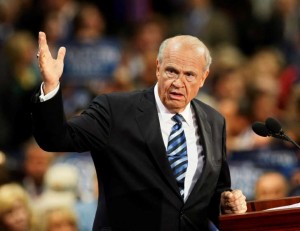There will be tributes a-plenty in the next few days and weeks as politicians — and actors — remember one of their own: former U.S. senator and former TV and film actor Fred Dalton Thompson.
The Tennessee Republican was a larger-than-life guy who died today at his home after battling a recurrence of lymphoma.
He ran for president once. Served in the Senate. Acted in some pretty good films and had a good run as the district attorney in the hit TV show “Law and Order.”
I want to remember this man in another fashion.
The first time I saw him was in 1973. It was on TV. I was a college student majoring in political science at Portland State University in Oregon and Thompson was serving as chief counsel for the Republican senators serving on the Select Senate Committee on Watergate.
Its chairman was the late Democrat Sam Ervin, the self-described “country lawyer” from North Carolina.
Thompson’s role in that committee was to provide legal advice for the Republicans on the committee. The panel was investigating the Watergate scandal that was beginning to metastasize and eventually would result in the resignation of President Nixon.
Fred Thompson had really bad hair, as I recall. But appearances aside, he was a tough interrogator, as was the Democrats’ chief counsel, Sam Dash.
My memory of Thompson was jogged a bit the other day by MSNBC commentator Lawrence O’Donnell who opined — after the daylong hearing of Hillary Clinton before the Select House Benghazi Committee — that senators and House members shouldn’t be allowed to question witnesses. O’Donnell cited the work that Thompson and Dash did in pursuing the truth behind the Watergate scandal.
Leave the questioning of these witnesses to the pros, O’Donnell said. The Benghazi committee congressmen and women, he said, made spectacles of themselves.
Thompson, indeed, was a tough lawyer. My memory of him at the time was that he questioned anti-Nixon witnesses quite hard and didn’t let up very much on those who supported the embattled president.
He did his job well.
That is what I remember today as the nation marks Sen. Thompson’s passing.
May he rest in peace.
